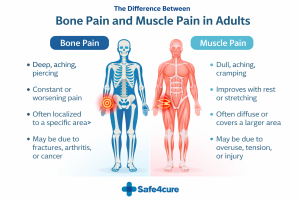Dental Implants have revolutionized the field of restorative dentistry, offering a durable and natural-looking solution for missing teeth. This comprehensive guide explores how dental implants can transform your smile, their benefits, the procedure involved, and their impact on your overall dental health. By understanding the transformative power of dental implants, you can make informed decisions about your oral health and enhance your confidence with a beautiful smile.
Why Dental Implants are a Game-Changer
Restoration of Functionality
One of the primary benefits of dental implants is their ability to restore the functionality of your teeth. Missing teeth can make eating and speaking challenging. Dental implants provide a strong foundation for replacement teeth, allowing you to bite, chew, and speak comfortably.
Natural Appearance
Dental implants are designed to look and feel like natural teeth. The implants are anchored into the jawbone, and the replacement teeth are custom-made to match the color, shape, and size of your existing teeth. This ensures a seamless integration with your natural smile, making the implants virtually indistinguishable from your real teeth.
Durability and Longevity
Dental implants are known for their durability and longevity. Made from high-quality materials such as titanium, implants are designed to withstand the forces of chewing and biting. With proper care, dental implants can last a lifetime, making them a cost-effective and long-term solution for missing teeth.
Preservation of Jawbone Health
When a tooth is lost, the underlying jawbone can start to deteriorate due to lack of stimulation. Dental implants help preserve jawbone health by providing the necessary stimulation to maintain bone density. This prevents the bone loss that often accompanies tooth loss and helps maintain the structure of your face.
The Dental Implant Procedure
Initial Consultation
The process begins with a thorough dental examination and consultation. During this visit, your dentist will assess your oral health, discuss your needs, and create a personalized treatment plan. This may include imaging studies such as X-rays or CT scans to evaluate the condition of your jawbone and plan the placement of the implants.
Implant Placement
The next step is the surgical placement of the dental implants. During this procedure, the dentist will place titanium posts into the jawbone to serve as the roots for the replacement teeth. The surgery is typically performed under local anesthesia, ensuring that you are comfortable and pain-free.
Healing Period
After the implants are placed, a healing period is required for the implants to fuse with the jawbone in a process known as osseointegration. This period can take several months, during which time a temporary restoration may be used to protect the area and allow you to eat and speak normally.
Placement of the Permanent Restorations
Once the implants have fully integrated with the bone, the permanent replacement teeth, known as crowns, bridges, or dentures, are attached to the implants. These restorations are custom-made to fit securely and match your natural teeth, completing the transformation of your smile.
Benefits of Dental Implants
Improved Aesthetics
Dental implants provide a natural-looking and aesthetically pleasing solution for missing teeth. The custom-made restorations blend seamlessly with your existing teeth, enhancing the overall appearance of your smile and boosting your confidence.
Enhanced Comfort
Unlike traditional dentures, which can sometimes cause discomfort or irritation, dental implants become a permanent part of your mouth. They offer a comfortable and secure fit, eliminating the need for adhesives and adjustments.
Convenience
Dental implants do not require special cleaning procedures or dietary restrictions. You can care for them just like your natural teeth, with regular brushing, flossing, and dental check-ups. This makes them a convenient and low-maintenance option for tooth replacement.
Improved Speech
Missing teeth can affect your ability to speak clearly. Dental implants restore the full functionality of your teeth, allowing you to speak with confidence and clarity. The replacement teeth are securely anchored, reducing the risk of slippage or movement that can impact your speech.
Boosted Self-Esteem
A complete and attractive smile can significantly enhance your self-esteem and overall well-being. Dental implants help restore your smile, allowing you to feel more confident in social and professional settings.
Aftercare and Maintenance
Regular Dental Visit
To ensure the longevity of your dental implants, it is important to maintain regular dental visit. Your dentist will monitor the health of your implants, check for any signs of complications, and provide professional cleanings to keep your oral health in top condition.
Oral Hygiene Practices
Maintaining good oral hygiene is crucial for the success of dental implants. Brush your teeth twice a day with fluoride toothpaste, floss daily, and use an antimicrobial mouthwash to keep your mouth clean and free from plaque buildup.
Avoiding Harmful Habits
Certain habits, such as smoking or excessive alcohol consumption, can negatively impact the health of your dental implants. Avoiding these habits will help ensure the success and longevity of your implants.
Protective Measures
If you participate in contact sports or activities that pose a risk to your dental implants, consider wearing a mouthguard to protect your implants from potential damage.
Dental Implants Transformation
Dental implants offer a transformative solution for missing teeth, providing restored functionality, natural appearance, and long-term durability. By understanding the benefits of dental implants, the procedure involved, and the aftercare required, you can make informed decisions about your oral health. Whether you’re looking to enhance your smile or improve your quality of life, dental implants can provide a lasting and effective solution.






